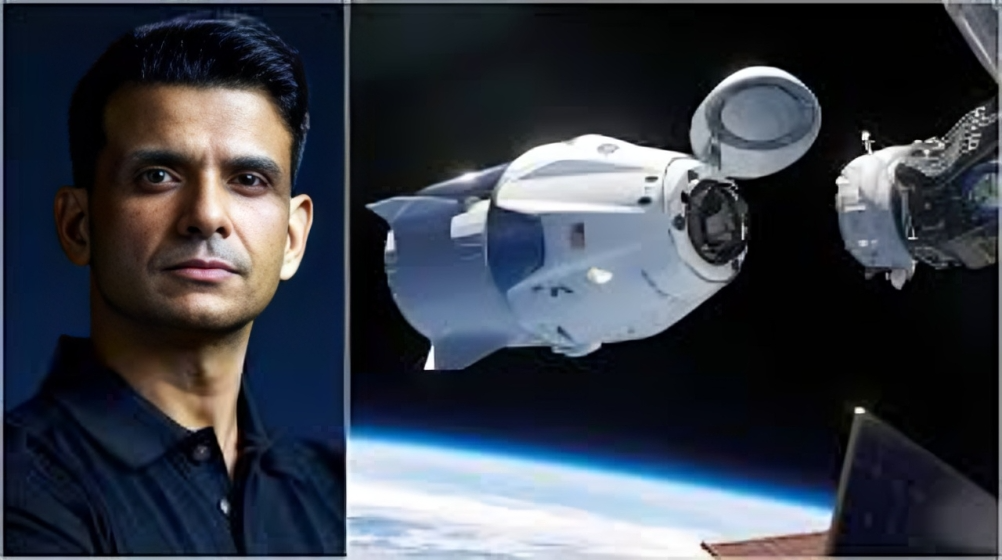ISRO Axiom-4 Mission: Major Space Research Projects Announced Aboard ISS
ISRO Axiom-4 Mission is set to play a crucial role in the most extensive scientific campaign ever conducted under an Axiom Space mission aboard the International Space Station (ISS). This historic mission involves over 60 scientific studies and activities from 31 nations including the United States, India, Saudi Arabia, Poland, UAE, and Brazil. The ISRO Axiom-4 Mission is being executed in collaboration with NASA and represents India’s increasing involvement in cutting-edge space research.
ISRO Axiom-4 Mission to Explore Crop Growth in Space
One of the key experiments in the ISRO Axiom-4 Mission will focus on evaluating the impact of microgravity on six varieties of crop seeds. These seeds will be brought back to Earth, cultivated for multiple generations, and studied for favorable traits through genetic analysis. The goal of the ISRO Axiom-4 Mission in this area is to improve understanding of how agriculture could work in space—a vital component for long-term space exploration.
Studying Cyanobacteria Aboard ISS
Another fascinating project under the ISRO Axiom-4 involves the study of cyanobacteria—photosynthetic aquatic bacteria that can be instrumental for future spacecraft life support systems. The experiment will compare two cyanobacterial strains to assess their growth, cellular response, and biochemical performance in microgravity. ISRO Axiom-4 scientists aim to develop sustainable environmental controls for future missions using such organisms.
Sprouts and Microalgae: Enhancing Space Nutrition
The ISRO Axiom-4 will also study the germination and genetic impact of sprouts in microgravity. Scientists aim to understand how space conditions affect microbial load, nutrition, and genetic structure of food crops. Additionally, microalgae will be tested under the ISRO Axiom-4 to evaluate their viability as future sources of food, fuel, and oxygen in space habitats.
Myogenesis: Understanding Muscle Loss in Space
In the ISRO Axiom-4, a dedicated project will examine how and why astronauts experience muscle loss during extended space travel. Known as the myogenesis experiment, it will explore cellular pathways responsible for muscle atrophy and test potential therapies. Findings from the ISRO Axiom-4 could benefit not just astronauts but also people suffering from muscle degeneration on Earth.
Voyager Displays: Studying Human-Machine Interaction in Microgravity

ISRO Axiom-4 Mission experiments on ISS including microalgae, sprouts, and tardigrades
One of the advanced human factors studies of the ISRO Axiom-4 Mission is the Voyager Displays experiment. This will assess how microgravity affects visual and motor tasks like pointing, gaze tracking, and eye movements. This research will help optimize spacecraft interfaces for long missions. The ISRO Axiom-4 underscores how technology must adapt for future spacefarers.
Tardigrade Revival in Space: Voyager Tardigrades
The ISRO Axiom-4 will also investigate the famous water bear—tardigrades—by sending them to ISS and examining their survival and reproduction. This includes observing revival from dormancy, egg-laying behavior, and gene expression patterns. The ISRO Axiom-4 seeks to unlock the molecular resilience of life in extreme conditions.
STEMonstrations: Inspiring Future Scientists
As part of the ISRO Axiom-4 Mission, four STEAM (Science, Technology, Engineering, Arts, Mathematics) outreach demonstrations will be conducted for Indian students. These STEMonstrations aim to inspire curiosity and scientific temper, a vital element of ISRO’s broader educational goals through the ISRO Axiom-4 Mission.
A Global Scientific Alliance with Future in Mind
With participation from over 30 nations, the ISRO Axiom-4 Mission marks an important milestone in international cooperation and scientific innovation. The mission’s broad research portfolio makes it the most scientifically intense Axiom mission to date. For India, the ISRO Axiom-4 Mission is not just about experiments—it is a rehearsal for the upcoming Gaganyaan mission, India’s first manned flight to Low Earth Orbit (LEO).
ISRO Axiom-4 Mission Sets the Stage for Gaganyaan
The ISRO Axiom-4 Mission is more than just a set of space experiments—it’s a strategic effort aligned with India’s long-term space goals. As ISRO prepares for the Gaganyaan mission, the insights gathered from the ISRO Axiom-4 Mission will be critical for shaping safe and sustainable manned missions in the future. With breakthroughs in agriculture, biology, physiology, and human-computer interaction, the ISRO Axiom-4 Mission solidifies India’s place in global space exploration.

